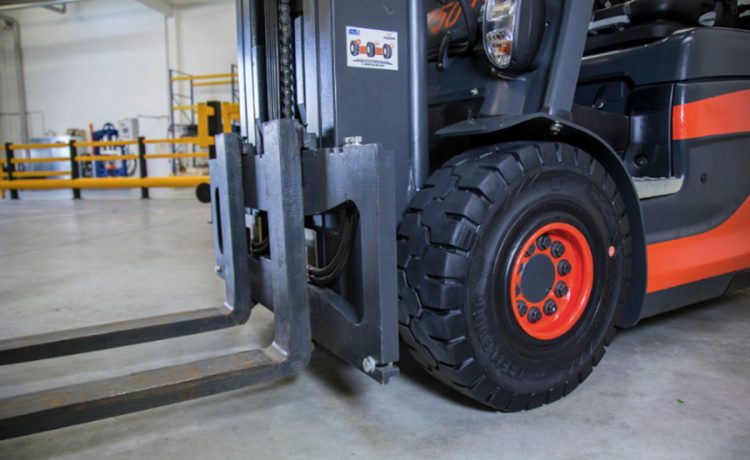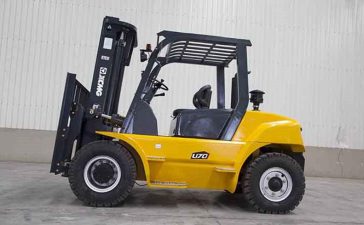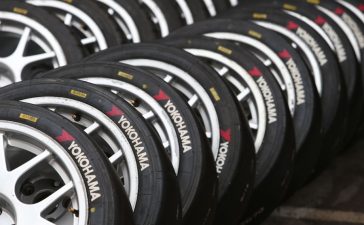In any busy warehouse, logistics centre, or material handling site, the performance and safety of operations depend greatly on the equipment used. Among the most critical components of a forklift — yet often overlooked — are the forklift tyres. These tyres are not merely accessories; they are fundamental to the safety, load-bearing capacity, and movement of the forklift across various surfaces. Choosing the wrong type can result in reduced efficiency, increased wear, and even pose risks to workers.
When properly chosen and maintained, tyres can help minimise operational delays and reduce maintenance costs. They serve as the vital link between the forklift and the ground, influencing not just movement but also braking, steering, and load stability.
Understanding the Types and Functions of Forklift Tyres
Different working conditions demand different tyre types. Some forklifts operate indoors on smooth concrete floors, while others function outdoors on rough terrain or uneven surfaces. Choosing the appropriate tyre type ensures that the forklift performs optimally regardless of the environment.
Forklift typically fall into three categories — solid, pneumatic, and cushion. Each type has its own characteristics, advantages, and ideal usage scenarios. For example, solid tyres, being puncture-proof, are more durable in environments with debris, whereas pneumatic tyres offer better shock absorption on uneven outdoor surfaces. Cushion tyres, made of solid rubber, are ideal for indoor use where compact turning and smooth floors are common.
What remains consistent, regardless of the type, is the need for quality and durability. Investing in substandard tyres might save money in the short term, but will inevitably lead to increased replacement frequency and potential downtime.
Enhancing Productivity and Safety through Tyre Maintenance
Maintaining forklift tyres is just as important as selecting the right ones. Tyres that show signs of excessive wear, cracks, or flat spots can compromise not only the forklift’s performance but also the safety of the operator and nearby workers. Regular inspections help identify issues early, allowing for timely replacements and adjustments.
Tyre pressure should also be monitored for pneumatic options, as incorrect pressure can affect the machine’s stability and fuel efficiency. For solid and cushion types, keeping an eye on tread depth and surface integrity is key to ensuring consistent performance.
Routine checks contribute to smoother handling, better braking, and less strain on the forklift’s motor and hydraulics. In the long run, such practices extend the life of both the tyres and the forklift itself.
Cost Efficiency and Operational Reliability with the Right Investment
Investing in high-quality forklift tyres may seem like an additional expense, but it quickly proves to be a cost-effective choice. Well-made tyres reduce the frequency of replacements, minimise the risk of operational halts, and support better handling, which can speed up loading and unloading times.
Beyond the immediate financial considerations, there’s a long-term benefit in enhanced safety. Accidents caused by faulty or worn tyres can result in serious injuries, equipment damage, or product loss — all of which are far more expensive than a new set of tyres.
Selecting tyres from trusted suppliers also ensures better customer service, warranties, and after-sales support, which adds value over time. For businesses that rely heavily on forklifts, having a dependable set of tyres translates into uninterrupted productivity and peace of mind.
Choosing Forklift Tyres Based on Your Workplace Conditions
Each workplace is unique, and so is its flooring, layout, and load requirements. That’s why choosing tyres should never be a generic decision. A warehouse with polished floors and narrow aisles will benefit from compact, low-profile tyres that enhance turning precision. In contrast, a construction yard may need heavy-duty options that resist punctures and handle uneven surfaces without compromising balance.
Before making a purchase, assess your operational needs, working environment, and expected usage patterns. Consulting with tyre specialists or equipment suppliers can provide useful insights tailored to your workplace, helping you make a smart and sustainable investment.
Final Thoughts
The humble tyre may not seem like the most significant part of your machinery, but it plays a central role in how well your forklift performs. From ensuring safety and reducing fuel consumption to supporting smooth operations and cutting down on repairs, forklift tyres carry more weight than one might assume.
Treating them as a top priority — rather than an afterthought — will reward you with better productivity and fewer operational headaches. Whether you’re managing a single unit or an entire fleet, keeping your tyres in top shape can make all the difference in day-to-day efficiency and long-term profitability.













